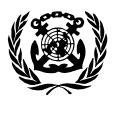THE INTERNATIONAL MARITIME ORGANIZATION (IMO)

BACKGROUND: The seven seas, accounting for about two-thirds of the earth's surface, are the only truly international part of our globe. Except for a marginal belt a very few miles wide, touching on the shores of countries, the greater part of the world's oceans and maritime resources are the common property of all nations. Since ancient times, however, "freedom of the seas" has too often been a theoretical ideal rather than a reality. In each historic era, the great maritime powers tended to use their naval might to dominate the sea. Some of those powers, while serving their own interests, served the world as a whole, as in the great explorations of unknown continents. Many sought to use the waters for purely national interests, particularly in matters affecting straits and other narrow waterways. Private shipping interests, often supported by their national governments, have been even more competitive, and international cooperation in maritime matters has been very limited.
The need for an international organization to develop and coordinate international maritime cooperation was expressed by President Woodrow Wilson, who called for "universal association of the nations to maintain the inviolate security of the highway of the seas for the common and unhindered use of all the nations of the world." However, it was not until after the creation of the UN that such an organization came into being.
BIBLIOGRAPHY
IMO News. Quarterly.
IMO—What It Is, What It Does. Descriptive leaflet.
(The IMO also publishes the texts of all its conventions, codes, and recommendations, as well as a number of specialized manuals and guides, such as the Manual on Oil Pollution; Regulations on Subdivision and Stability of Passenger Ships; Merchant Ship Search and Rescue Manual; International Maritime Dangerous Goods Code; Pocket Guide to Cold Water Survival; and Noise Levels on Board Ships. ) A complete listing of current publications is available at the IMO web site http://www.imo.org/home.asp ).
Comment about this article, ask questions, or add new information about this topic: